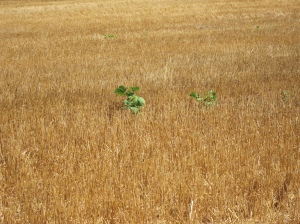Please read this:
Matthew 13:24–30 (ESV)
The Parable of the Weeds
24 He put another parable before them, saying, “The kingdom of heaven may be compared to a man who sowed good seed in his field, 25 but while his men were sleeping, his enemy came and sowed weeds among the wheat and went away. 26 So when the plants came up and bore grain, then the weeds appeared also. 27 And the servants of the master of the house came and said to him, ‘Master, did you not sow good seed in your field? How then does it have weeds?’ 28 He said to them, ‘An enemy has done this.’ So the servants said to him, ‘Then do you want us to go and gather them?’ 29 But he said, ‘No, lest in gathering the weeds you root up the wheat along with them. 30 Let both grow together until the harvest, and at harvest time I will tell the reapers, Gather the weeds first and bind them in bundles to be burned, but gather the wheat into my barn.’ ”
How have you read this? How has it been taught to you? I remember this being taught in several contexts, but the gist is that evil and good people co-exist until judgement, and we cannot be too quick to give up on people. Only in the End is it known for certain whether or not a person is saved.
But this passage doesn’t teach this. Now, if I’m the only one who is surprised, maybe I just have a poor memory of what was taught when I was younger. But if not, here goes.
It is obvious from the beginning who the weeds are. There is no change from weed to wheat, and there is change of the set path of fire or barn.
This parable is about delayed judgement, not delayed knowledge. While God may turn weeds into wheat, bad seeds into good, there really is no mistaking which is which. This is reprobation on display. Is it not possible that some people are simply reprobates, who, like Pharaoh, have been chosen for God’s wrath?
Romans 9:17 (ESV)17 For the Scripture says to Pharaoh, “For this very purpose I have raised you up, that I might show my power in you, and that my name might be proclaimed in all the earth.”
In more times than not, a person either responds to the Gospel or hardens against it relatively early in life. Weeds are obvious.


